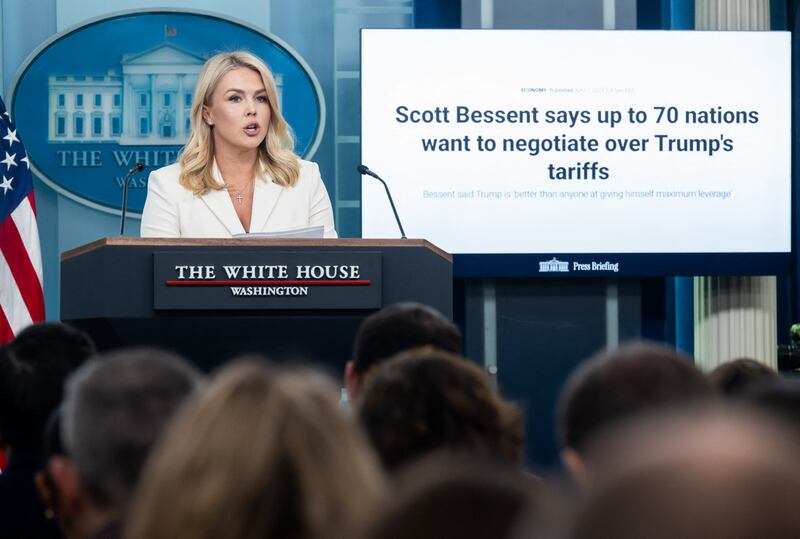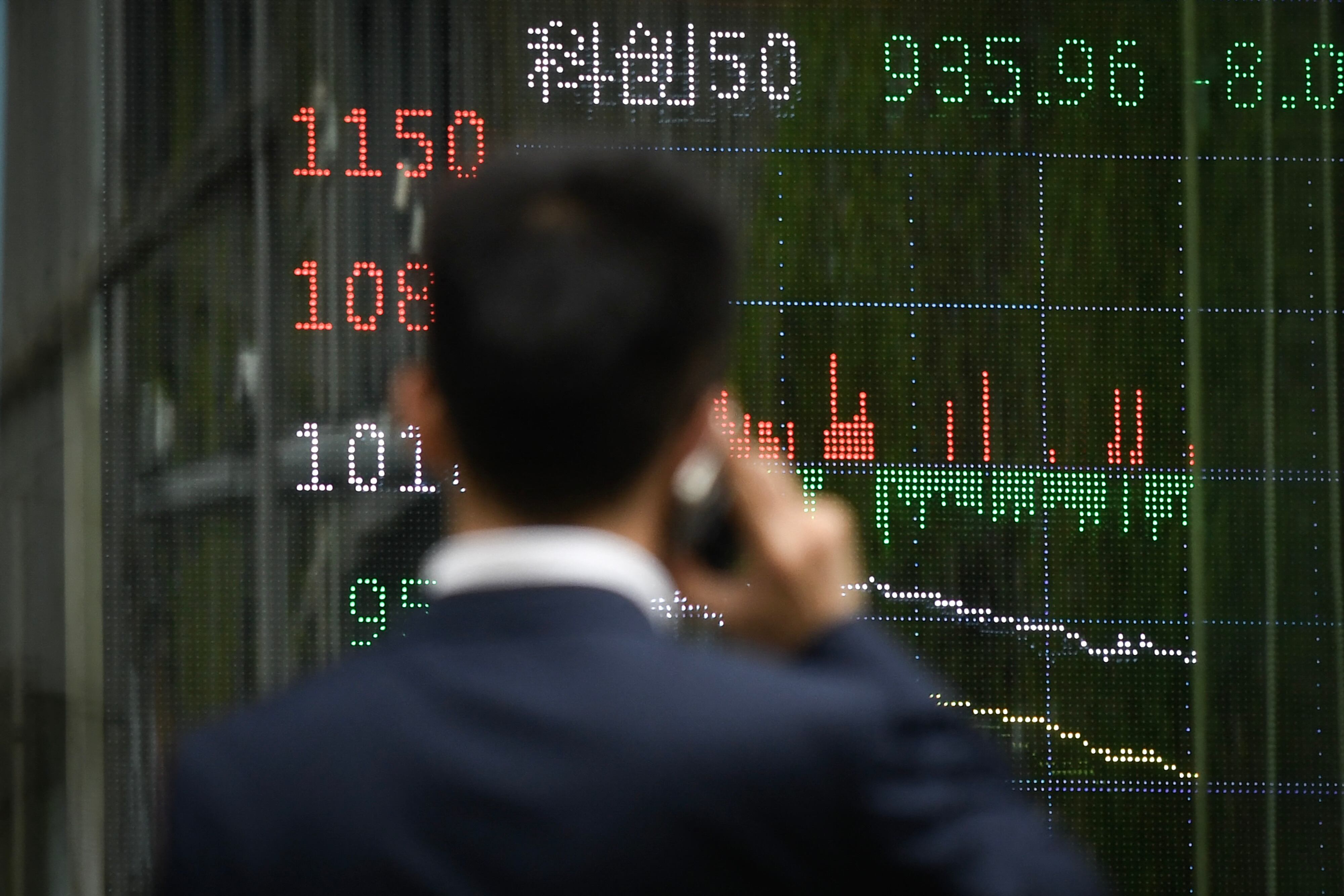Updated April 9, 2025, 4:00 p.m. ET
TAIPEI, Taiwan – U.S. President Donald Trump announced a 90-day pause on ‘reciprocal’ tariffs for many countries, with the exception of those against China, which he raised to 125%, just hours after Beijing hiked its retaliatory tariffs against the United States to 84%.
Stocks rallied sharply on the news on Wednesday, as Trump said he was temporarily reducing duties for more than 75 countries to a universal 10% during the three-month period, saying these countries had reached out to negotiate a solution and have not retaliated against the United States.
But the hikes on imports from China to 125% from 104% will be effective immediately, due to the ‘lack of respect that China has shown to the world’s markets’, Trump said in a social media post.
“At some point, hopefully in the near future, China will realize that the days of ripping off the USA and other countries is no longer sustainable or acceptable,” wrote Trump in a Truth Social media post.
Earlier on Wednesday, China hiked its retaliatory tariffs against the United States to 84% after President Trump’s sweeping duties against 60 countries he deems the “worst offenders” on trade took effect at midnight.
“We are now experiencing a serious escalation in trade tensions between the two largest economies of the world. Both the U.S. and China are doubling down with retaliation against each other, with negative economic consequences for their businesses and citizens,” said Wendy Cutler, vice president of the Asia Society Policy Institute.
While most countries were racing to negotiate reductions, China responded to the 104% tariffs imposed against it by Washington by jacking up duties on U.S. imports another 50% from the earlier planned 34%. Those higher tariffs take effect Thursday.

“The U.S. escalation of tariffs on China is a mistake on top of a mistake, which seriously infringes on China’s legitimate rights and interests and seriously undermines the rules-based multilateral trading system,” China’s finance ministry said in a statement as it announced the 84% tariffs.
Beijing also imposed restrictions on 18 U.S. companies, mostly in defense-related industries, adding to the 60 or so American firms punished over Trump’s tariffs, Reuters reported.
The trade battle between the U.S. and China, the world’s two largest economies, threatens to slow the global economy and has fueled fears of recession.
Trump upended the global trade status quo last week, imposing a universal 10% tariff on all imports, effective April 5, and additional tariffs on dozens of countries deemed to have unfair trade practices, effective Wednesday.
Initially, the U.S. said it was imposing a 34% tariff on Chinese exports, which Beijing matched, prompting Trump to retaliate this week with another 50% tariff on China. Earlier in the year, the U.S. had imposed a 20% tariff on China, which it said was in response to fentanyl trafficking.
Speaking at a Republican Party dinner Tuesday, Donald Trump said the tariffs were “going to be legendary, in a positive way.”
“Many countries … have ripped us off left and right, but now it’s our turn to do the ripping,” he said.
Trump has described the tariffs as “somewhat explosive” and “amazing,” claiming that import tariffs were already generating “almost US$2 billion a day” for the U.S.
China’s foreign ministry reiterated Wednesday that Beijing will take “resolute and forceful” measures to protect its own interests.
“If the U.S. genuinely wants to resolve the problem through dialogue and negotiation, it should show an attitude of equality, respect and mutual benefit,” foreign ministry spokesperson Lin Jian said at a regular press briefing.
Lin said that “if the U.S. insists on fighting a tariff war and a trade war, China will “definitely fight to the end.”
World leaders have rushed to negotiate, scheduling phone calls and sending delegations to Washington.
Many governments, including Vietnam and Taiwan, have offered concessions in hopes of avoiding the tariffs.
Trump said that 70 had approached the U.S. and that officials would begin talks with South Korea and Japan.
Stocks slumped in Asia on Wednesday, adding to the losses that have mounted in markets around the world since Trump announced the latest round of tariffs last week.
Edited by Stephen Wright and Mat Pennington.
Updated with the U.S. hiking tariffs against China to 125%, effective immediately, and announcing a 90-day pause on reciprocal tariffs for most countries

